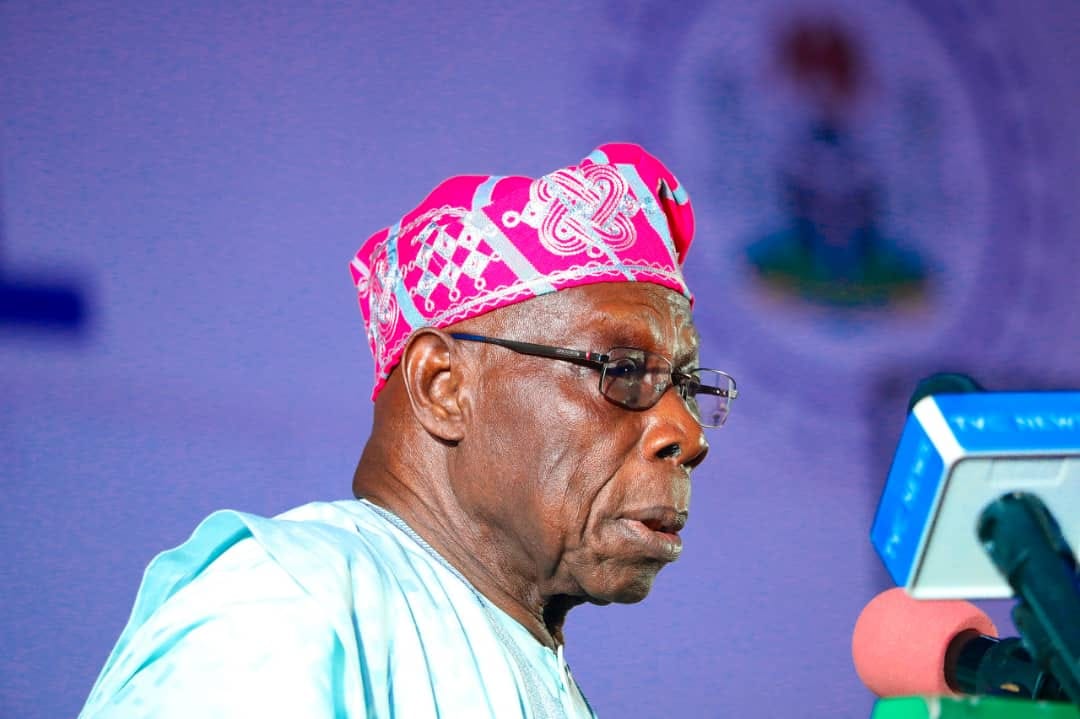Former Nigerian President Olusegun Obasanjo has warned that a UK-India trade deal “will lead to huge cost increases for health systems and catastrophic delays in accessing medicines if British negotiating demands are met.”
The UK wants India to implement sweeping changes to its intellectual property rules as part of any agreement, “threatening India’s ability to supply inexpensive quality medicines to the rest of the world.”
In an opinion piece published on devex, Mr Obasanjo describes Indian generics as “a lifeline” which he noted helped to make HIV medicines affordable for African countries.
He however said “a trade deal between India and the UK could cut short the lifeline.”
“During my time as president of Nigeria, I saw the impact of Indian generics firsthand. In 1999, as I began my second term in office, Nigeria could not afford HIV treatment, even though we were experiencing one of the worst epidemics in Africa at the time,” he said.
“In the early 2000s, Indian generics slashed the price of treatment from more than $10,000 a year per patient to just around $365, a dollar a day. By 2008, India supplied 84 per cent of Nigeria’s antiretroviral HIV medicines, saving countless lives.”
He noted that Nigeria is now one of India’s top five importers of pharmaceuticals, spending over half a billion dollars annually.
Negotiation
A negotiating paper leaked last year revealed the extent of the UK’s intellectual property demands for India.
The document, reports claimed, included increasing the 20-year monopoly that pharmaceutical companies can have on medicines before facing generic competition and repealing Indian legislation which allows patents to be challenged before they are granted or extended.
Mr Obasanjo said the UK’s proposals will lead to “huge cost increases for health systems and catastrophic delays in accessing medicines”.
READ ALSO: EXCLUSIVE: Why I ordered Oyo Obas to stand – Obasanjo
“India provides more than half of Africa’s generic medicines, and a third of those used by the UK’s National Health Service (NHS). Disrupting their supply is not in the interest of our patients or our health systems,” he said.
His article comes as the UK and India appear to be inching closer to the agreement. The UK Prime Minister Rishi Sunak was also previously expected to travel to India to sign the deal as soon as this week, but his trip has reportedly been postponed while areas of disagreement remain.
Mr Obasanjo said the world has just emerged from a pandemic marked by global inequality and the lessons of the last three years are clear.
He urged governments to work together to ensure that countries can access the technology and know-how necessary to safely and affordably manufacture and provide enough medical supplies to meet populations’ needs.
“Free trade agreements should make it easier for all countries to access affordable medicines,” he said.
“They should ensure that health systems can respond to emerging threats while continuing to provide routine health services.”
He said the U.K.-India trade deal is an opportunity for both countries to promote equity and the health of all populations.
Support PREMIUM TIMES’ journalism of integrity and credibility
Good journalism costs a lot of money. Yet only good journalism can ensure the possibility of a good society, an accountable democracy, and a transparent government.
For continued free access to the best investigative journalism in the country we ask you to consider making a modest support to this noble endeavour.
By contributing to PREMIUM TIMES, you are helping to sustain a journalism of relevance and ensuring it remains free and available to all.
Donate
TEXT AD: Call Willie – +2348098788999





